
Professor Arthur Burns
Professor of Modern British History
Research interests
- History
Biography
The Department of History is deeply saddened to report the death of colleague and friend Arthur Burns, who died 3 October 2023.
--
Arthur Burns was a Professor of Modern British History and served as Head of Department between 2004 and 2008 and Vice-Dean of the Faculty of Arts and Humanities (Education) 2014-17. He was currently academic director of the Georgian Papers Programme.
Primarily a historian of later Hanoverian and Victorian Britain, Arthur Burns engaged with the history of the Church of England over a much longer period, notably through his pioneering involvement in digital humanities. He also co-directed an innovative knowledge transfer project involving historians, archives and the Church of England. He co-founded the Boydell and Brewer monograph series Studies in Modern British Religious History, which has now published more than 35 volumes on this theme. Arthur Burns studied for both his undergraduate degree and doctorate at Balliol College, Oxford. Prior to joining King’s in 1992, he combined teaching at Mansfield College, Oxford with a post as sub-editor of Past and Present.
Research interests and PhD supervision
- Modern British religion since 1750
- Hanoverian and early Victorian Britain
- The Georgian papers
Arthur Burns’ chief area of publication has been the institutional and cultural history of English religion since the mid-eighteenth century, with a particular focus on the Church of England. He was writing a book on the extraordinary history of Christian Socialism over the course of the twentieth century in the single parish of Thaxted in Essex, covering amongst other things the famous incumbency of Conrad Noel, its connections with cultural activity ranging from arts and crafts furniture via morris dancing to the music of Gustav Holst, the Cambridge scientist and historian Joseph Needham, and one of the first gay clergy to be open about his sexual orientation, Peter Elers. This project reflects wider interests in representations (in both senses) of the national church in modern Britain, and in the church’s role as an institution mediating between the national and local, both themes of his first book, The Diocesan Revival in the Church of England (1999), and which also featured prominently in his contribution to and co-editing of the award-winning St Paul’s: The Cathedral Church of London 604-2004 (Yale University Press, 2004). Since 1999 Arthur Burns has been a director of The Clergy of the Church of England Database, 1540-1835, a pioneering web-based initiative which charts the careers of all Anglican clergy in England and Wales from the Reformation to the mid-nineteenth century. Arthur Burns has also published on the dynamics of reform in Hanoverian Britain (Rethinking the Age of Reform: Britain 1780-1850, coedited with Joanna Innes, 2003) and the history of walking.
For more details, please see his full research profile.
Teaching
Arthur Burns contributed both to the teaching of the overall history of Modern Britain and of historical skills at all levels. He also taught courses reflecting his own research interests in modern British religion and the history of later Hanoverian Britain, including innovative modules working with archivists which place students at the heat of the Georgian papers programme which he directs.
Expertise and public engagement
From 2012 to 2016 Professor Burns was Vice President (Education) of the Royal Historical Society. He was President of the Church of England Record Society, having previously served as treasurer and council member for many years. He was a convenor of the British History in the Long Eighteenth Century Seminar at the Institute of Historical Research. Professor Burns has appeared on television, notably in Tony Palmer’s film about Gustav Holst, In the Bleak Midwinter, and discussing Patsy Kensit’s clerical ancestor in Who Do You Think You Are?; more recently he was seen in the BBC documentary George III: The Genius of the Mad King, screened on BBC2 in 2017. Burns gives frequent public talks and all his research has a strong public engagement, notably his current work for the Georgian Papers Programme and his involvement in the public Clergy of the Church of England Database 1540-1835.
The publication feed is not currently available.
News
NTLive to stream Nottingham Playhouse The Madness of George III
As part of its lockdown free streams programme, the National Theatre has announced that it will make available its recording of Nottingham Playhouse’s...

The Georgian Papers Programme commemorates the 200th anniversary of King George III's death
GPP marks the 200th anniversary of King George III’s death with the release of three new blogs offering fresh insights into the King’s funeral, responses to...
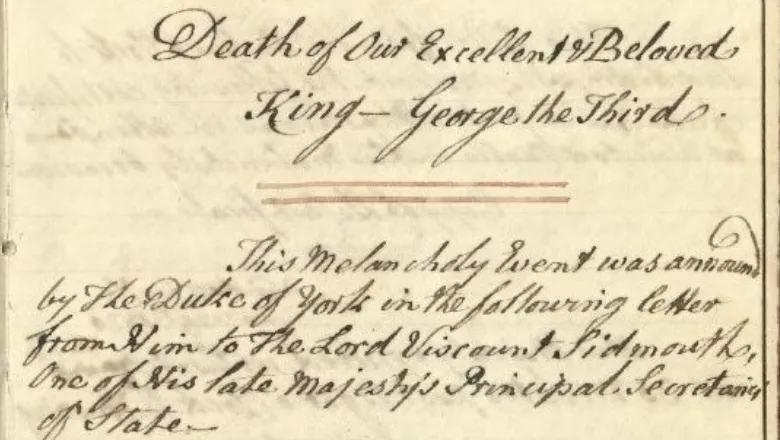
Georgian Papers Programme launches virtual exhibition exploring the 'madness' of George III
What can we learn from King George III’s illness about our understanding of mental health? The Georgian Papers Programme hosted a remarkable panel of experts...
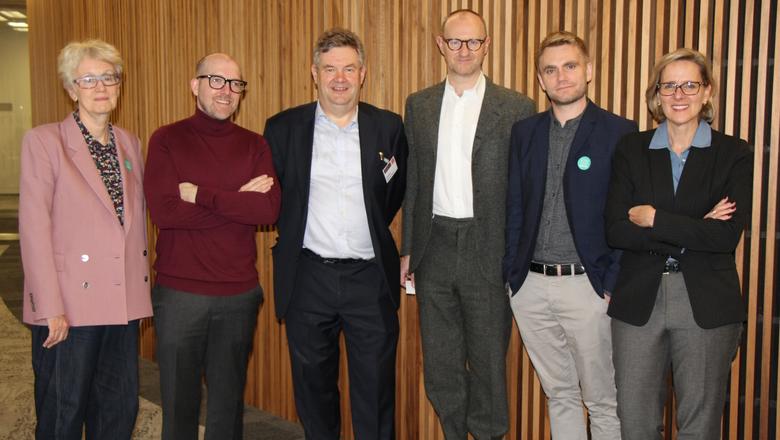
Digital archival programme wins prestigious Digital Resources Prize
The Georgian Papers Programme receive recognition from the British Society of Eighteenth-Century Studies.
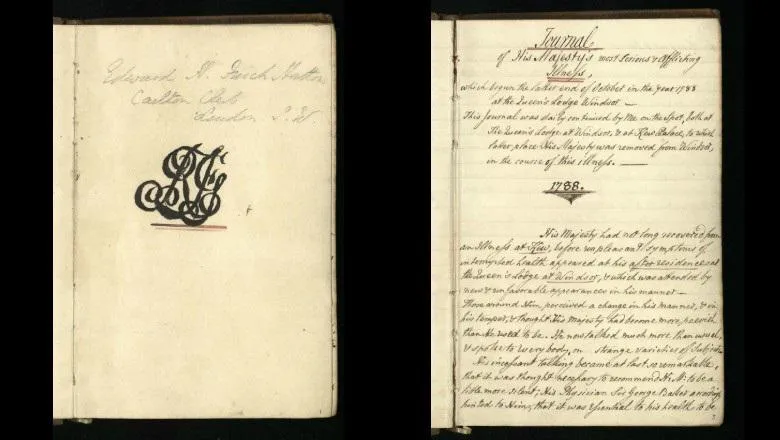
History 5th in the UK in the REF
The Department of History is pleased to announce that it has been ranked 5th in the UK for research quality and 7th in the UK for power in the recent Research...
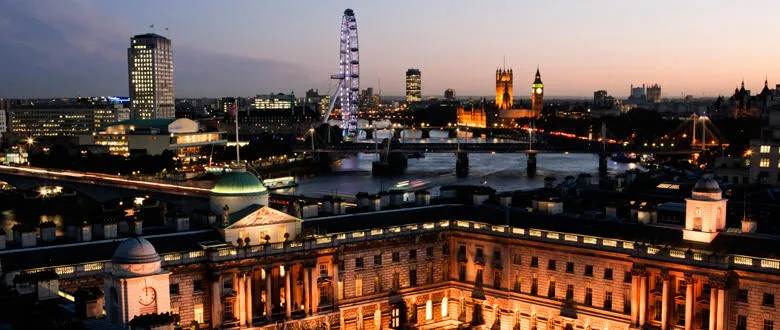
Professor Arthur Burns elected Vice President of Royal Historical Society
Professor Arthur Burns, Professor of Modern British History in the Department of History, has been elected a Vice President of the Royal Historical Society...
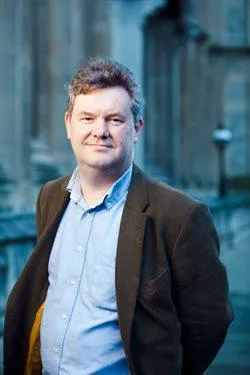
The publication feed is not currently available.
News
NTLive to stream Nottingham Playhouse The Madness of George III
As part of its lockdown free streams programme, the National Theatre has announced that it will make available its recording of Nottingham Playhouse’s...

The Georgian Papers Programme commemorates the 200th anniversary of King George III's death
GPP marks the 200th anniversary of King George III’s death with the release of three new blogs offering fresh insights into the King’s funeral, responses to...

Georgian Papers Programme launches virtual exhibition exploring the 'madness' of George III
What can we learn from King George III’s illness about our understanding of mental health? The Georgian Papers Programme hosted a remarkable panel of experts...

Digital archival programme wins prestigious Digital Resources Prize
The Georgian Papers Programme receive recognition from the British Society of Eighteenth-Century Studies.

History 5th in the UK in the REF
The Department of History is pleased to announce that it has been ranked 5th in the UK for research quality and 7th in the UK for power in the recent Research...

Professor Arthur Burns elected Vice President of Royal Historical Society
Professor Arthur Burns, Professor of Modern British History in the Department of History, has been elected a Vice President of the Royal Historical Society...

